The Legal Side of Private Investigations in South Carolina: What You Need to Know
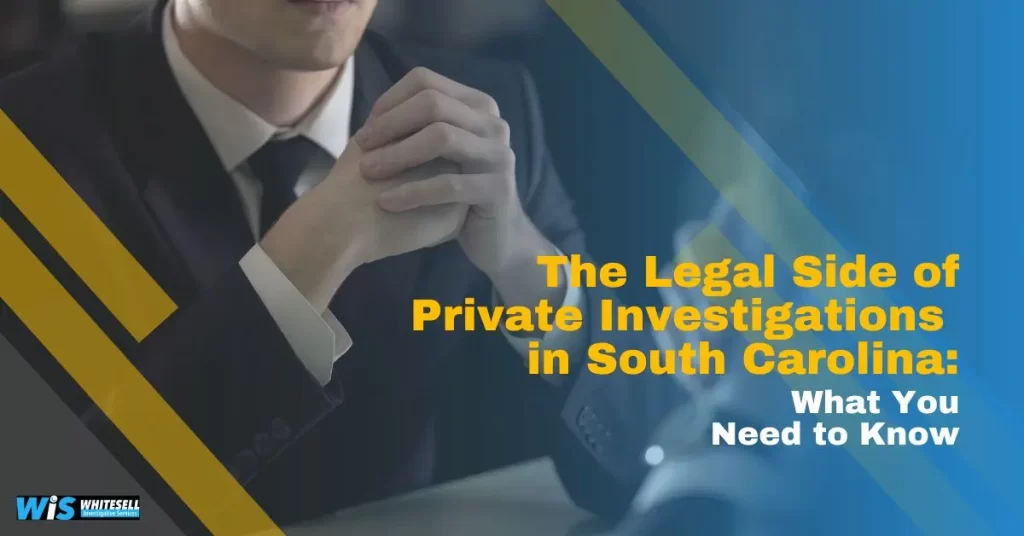
Private investigations are often portrayed in movies and TV shows as exciting, thrilling and even dangerous. However, in reality, private investigations are a serious business that requires proper training, knowledge and adherence to the law. This is especially true when it comes to conducting private investigations in South Carolina.
South Carolina has specific laws and regulations governing the practice of private investigations. These laws aim to protect the rights of individuals and prevent any illegal or unethical activities from taking place. Therefore, private investigators in South Carolina need to have a thorough understanding of these laws and regulations before conducting any investigations.
At Whitesell Investigative Services, we prioritize client confidentiality throughout our investigations. We understand the sensitive nature of our work and handle all information with utmost discretion while adhering strictly to legal requirements.
When seeking a private investigator in South Carolina, they must consider their knowledge of local laws and commitment to operating within legal boundaries. At Whitesell Investigative Services, we pride ourselves on upholding these principles as we strive for excellence in every investigation.
Trust us for professional expertise combined with adherence to the legal side of private studies in South Carolina.
What are the requirements to be a private investigator in South Carolina?
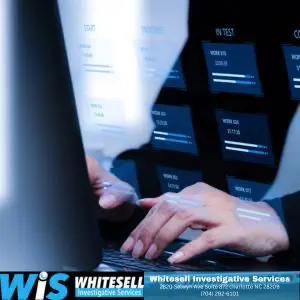
To become a licensed private investigator in South Carolina and provide professional investigative services, individuals must meet specific requirements set by the South Carolina Law Enforcement Division (SLED). These requirements ensure that private investigators possess the qualifications and ethical standards to operate in the state.
The key requirements include being at least 21, passing a thorough criminal background check, and submitting character references demonstrating trustworthiness and integrity.
While South Carolina does not specify strict educational or experience prerequisites, having relevant experience, particularly in law enforcement, the military, or investigative roles, can be advantageous. Additionally, private investigators may need proof of liability insurance, a common industry practice, to protect clients and ensure accountability.
Successful applicants may also be required to pass a state-approved examination that tests their knowledge of the laws and regulations governing private investigations. Finally, submitting a completed application along with the appropriate fees is part of the licensing process.
Once these requirements are met, individuals can obtain a license from SLED, allowing them to operate as private investigators in South Carolina while upholding the highest ethical and professional standards. Whitesell Investigative Services ensures compliance with these requirements to provide our clients with reliable, legal, and ethical investigative services.
What do private investigators do?
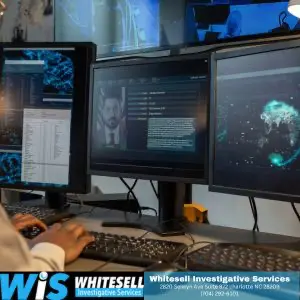
Private investigators, often called PIs or detectives, provide various investigative services. Their tasks may include conducting surveillance, background checks, locating missing persons, investigating insurance fraud, performing asset searches, providing litigation support, gathering evidence for legal cases, and probing corporate misconduct. They assist individuals, businesses, and legal professionals uncover information, verifying facts, and resolving various issues.
Private investigators use multiple techniques, such as research, interviews, surveillance, and database searches, to gather information and evidence relevant to their clients’ needs.
What are the ethics of a private investigation?

Ethics are fundamental to the practice of private investigation. Private investigators follow an ethical code that includes confidentiality, legal compliance, honesty, professionalism, and avoiding conflicts of interest. These ethical standards guide their conduct and behavior throughout the investigative process.
Investigators must respect individuals’ rights to privacy and ensure that their activities remain within the bounds of the law. Upholding ethical standards is crucial to maintaining trust, credibility, and professionalism in private investigations.
Is it legal to hire a private investigator in South Carolina?

Yes, hiring a private investigator in South Carolina is entirely legal. Licensed private investigators operate within the boundaries of the law and provide valuable assistance to individuals, businesses, and legal professionals.
Clients seeking investigative services should verify that the investigator they plan to hire holds a valid license issued by SLED. Ensuring that you work with a qualified and legally compliant professional helps guarantee the reliability and legality of the investigative services provided.
What license do you need to be a private investigator in SC?
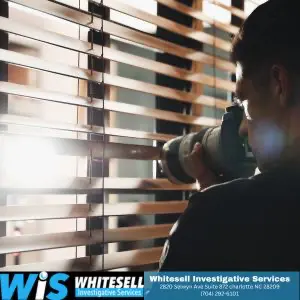
To become a private investigator in South Carolina and operate legally, individuals must obtain the appropriate license that was issued by the Law Enforcement Division of South Carolina (SLED). This licensing requirement ensures that private investigators meet specific qualifications and ethical standards to engage in professional investigative work.
The licensing process for private investigators typically involves several key steps:
- Background Check: Applicants must undergo a thorough criminal background check for licensing. Any convictions or disqualifying factors may affect the eligibility to obtain a license.
- Age Requirement: Applicants must be at least 21 years old to apply for a private investigator license in South Carolina.
- Education and Experience: While South Carolina does not specify strict educational or experience requirements, having a background in law enforcement, the military, or a related field can be advantageous. Relevant experience can strengthen an application.
- Insurance: Private investigators may be required to provide proof of liability insurance, a common industry practice to protect clients and ensure accountability.
- Examination: Depending on the licensing category, applicants may need to pass a state-approved exam that tests knowing the laws and regulations governing private investigations.
- Character References: Applicants typically need to provide character references as part of the application process, demonstrating their trustworthiness and integrity.
- Application and Fees: Applicants must submit a completed application to SLED and the appropriate fees. The fees may vary depending on the type of license being sought.
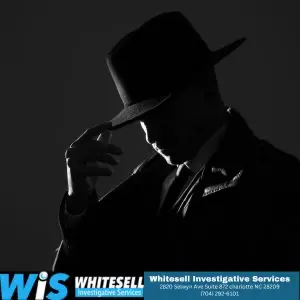
Once an individual completes the licensing process and obtains the necessary license, they are legally authorized to work as a private investigator in South Carolina. Clients seeking the services of a private investigator should always verify that the investigator they plan to hire holds a valid license issued by SLED, ensuring that they are working with a qualified and legally compliant professional.
At Whitesell Investigative Services, we take pride in meeting and exceeding all licensing requirements and ethical standards to provide our clients with reliable, legal, and professional investigative services. Contact us for information!
